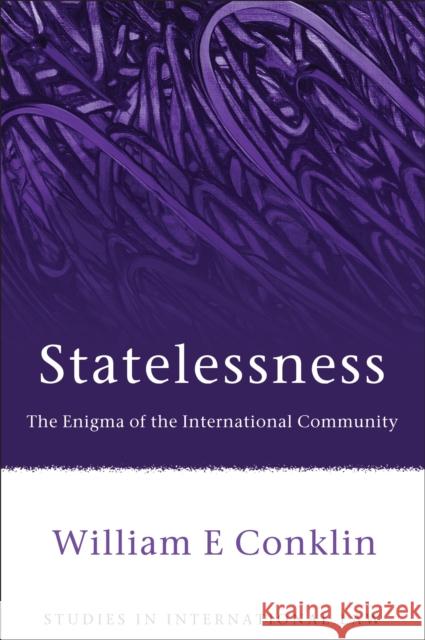Statelessness: The Enigma of an International Community » książka
Statelessness: The Enigma of an International Community
ISBN-13: 9781849465076 / Angielski / Twarda / 2014 / 380 str.
This book poses the enigma of a widespread absence of membership in an international community claiming universal standards for all natural persons. After identifying profound legal, social, and economic consequences of the enigma, the book critically evaluates the traditional efforts to recognize and reduce statelessness. The problem, the book argues, rests in the obligatory nature of a law, domestic or international. By closely analyzing a remarkably broad spectrum of court and tribunal judgments from many jurisdictions across the globe, Statelessness explains how two international law discourses - the one discourse inside the other - struggle as to the nature of an international community. The legal bond of the one community rests in a state's determination of one's allegiance to the state. Such a bond justifies the state's freedom to confer, withdraw, or withhold one's nationality. This international community hereby incorporates a state's freedom over nationality matters, risking statelessness. The other international community highlights a legal bond of socially experienced relationships. Such a bond, judicially named 'effective nationality, ' exists independent of allegiance. Because the legal bond as social bonding exists independent of the wills of states, all states are legally obligated to protect stateless persons. Harm to a stateless person represents harm to the international community as a whole. The book will be of interest to all those working in the fields of human rights and public international law. (Series: Studies in International Law) Subject: Public International Law, Human Rights Law, Comparative Law











